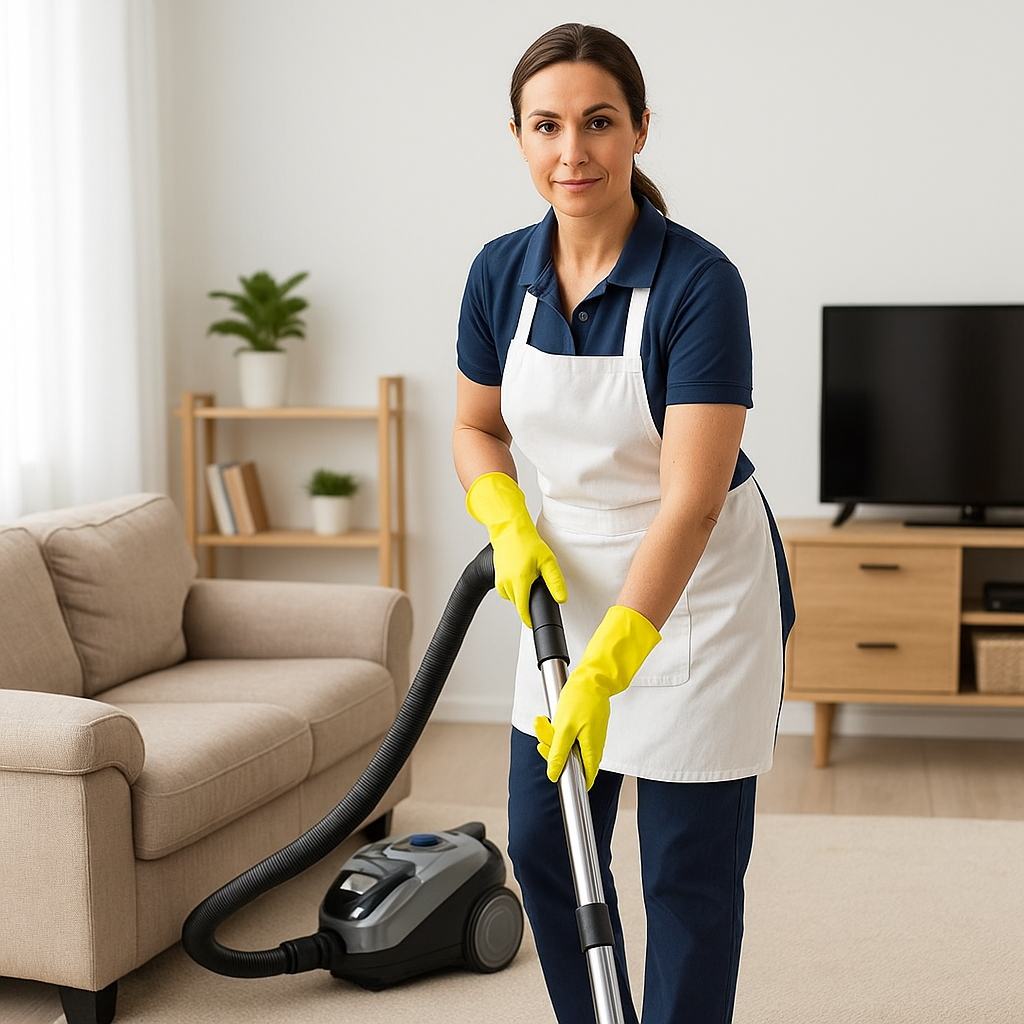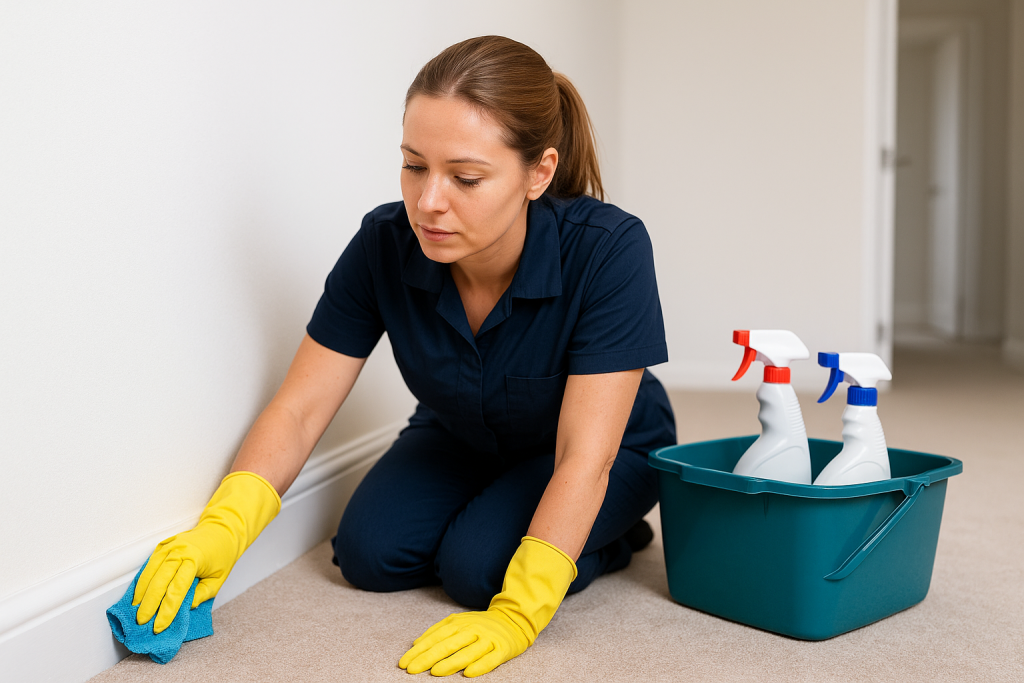
Keeping a home clean isn’t just about appearances — it’s a vital part of daily life that affects health, mood, and even productivity. But when it comes time to hire help, the costs can vary significantly. A range of factors influences domestic cleaning prices, some obvious and others less so. Understanding what drives these prices helps homeowners make smart choices and avoid unpleasant surprises.
Understanding the True Cost of a Clean Home
Cleaning a home thoroughly takes more than just elbow grease. It requires time, equipment, products, and expertise. The cost of domestic cleaning reflects all of these elements. It’s not just a fee for labor — it’s a bundled cost for quality, reliability, and convenience. What may seem like a simple service is actually a multifaceted operation, tailored to your home’s unique needs.
Why Domestic Cleaning Prices Vary So Widely
Two homes of the same size in different cities can have vastly different cleaning costs. Even within the same neighborhood, prices can vary depending on the provider, scope of work, and frequency. Factors like property condition, job complexity, and client preferences all play a role in shaping the final quote. There’s no one-size-fits-all pricing because no two homes — or homeowners — are the same.
What Is Included in Domestic Cleaning Services?
The Basic Services You Can Expect
Most standard cleaning services include dusting, vacuuming, mopping, surface wiping, kitchen cleaning, and bathroom sanitization. These essentials form the backbone of any domestic cleaning plan. Tasks like emptying bins, wiping baseboards, and making beds may also be included, depending on the provider.
Extras and Add-Ons That Increase the Price
Add-ons like interior window washing, oven cleaning, refrigerator defrosting, or laundry services often come with additional fees. Organizing cluttered areas or handling pet-related cleaning may also cost more. While these extras can elevate your home’s condition, they also extend the time and effort required, naturally increasing the price.
Types of Cleaning Services and Their Price Differences
Regular Maintenance Cleaning vs. Deep Cleaning
Regular maintenance cleaning is typically quicker and cheaper since it involves routine upkeep. Deep cleaning, on the other hand, dives into the corners and crevices, often requiring more time and stronger cleaning agents. It’s more detailed and thorough, and understandably comes with a higher price tag.
One-Off Cleaning vs. Recurring Contracts
A one-time clean tends to be more expensive per visit due to setup time and unfamiliarity with the space. Recurring contracts usually come with reduced rates, as cleaners work more efficiently once they know your home’s layout and expectations.
End of Tenancy and Move-In/Move-Out Cleaning
These intensive cleans are designed to return a property to like-new condition. They often include carpet shampooing, wall washing, and appliance deep cleans. Due to the extensive nature of the service, these cleans are priced significantly higher than routine cleaning.
Frequency of Cleaning
Weekly vs. Biweekly vs. Monthly Cleaning
The more frequently a home is cleaned, the less work it usually requires per visit. Weekly cleans are the most cost-effective in terms of hourly rate, while monthly services often require more time and cost due to the accumulation of dust and grime.
Discounts for Regular or Long-Term Clients
Many cleaning companies offer loyalty pricing or discounts for clients who commit to regular schedules. Not only does this help with planning, but it also reduces admin and travel costs for the provider — savings they may pass on to you.
Why One-Time Cleans Often Cost More
One-off bookings usually involve initial assessments, unfamiliar spaces, and possibly more effort than expected. Since there’s no guaranteed repeat business, companies often charge a premium to cover their overhead.
Regional Differences in Cleaning Rates
Prices in major cities like London or Amsterdam are naturally higher due to the increased cost of living and demand. In contrast, smaller towns and rural areas often see lower hourly or flat rates.
Time Required to Complete the Job
How Cleaners Estimate Time-Based Charges
Time is one of the most critical pricing factors. Cleaners often estimate based on the number of rooms, square footage, and any special requirements. The more time needed, the higher the cost.
Factors That Increase Time on Site
Cluttered homes, pets, children, or unusual layouts can extend cleaning time. Special requests or lack of regular upkeep also add to the hours spent on-site.
Who Provides the Cleaning Products?
Clients who supply their products may save money, but most professional services prefer to use their trusted brands. This ensures efficiency and avoids any incompatibility with surfaces.
Number of Cleaners Assigned
Solo Cleaners vs. Cleaning Teams
A single cleaner may take longer but cost less per hour. Teams are faster but may result in a higher overall fee. The right choice depends on your timeline and preferences.
How Crew Size Affects Speed and Cost
More cleaners mean faster work, which is ideal for large homes or time-sensitive jobs. However, coordinating larger crews may come with a premium.
Time of Day or Week
Weekend and Evening Cleaning Surcharges
Cleaning outside standard working hours often involves overtime pay, which is passed on to the client. Expect higher rates for weekend or after-hours bookings.
Holiday and Emergency Booking Fees
Last-minute or holiday cleaning services usually include surcharges. These fees reflect the inconvenience and demand placed on the cleaning provider.
Insurance and Certification
Why Licensed and Insured Cleaners May Charge More
Professional companies that are bonded and insured protect both their workers and your property. This reliability and peace of mind come at a slight premium — and it’s worth every cent.
Seasonal and Market Demand Fluctuations
How Seasons and Holidays Affect Pricing
Spring cleaning season, holidays, and year-end periods often lead to higher demand. Prices typically spike during these busy windows.
Local Events and Demand Surges
If a major event or festival is happening in your area, cleaning services may be in higher demand. This can temporarily raise prices as availability decreases.
Tips for Getting the Best Value for Your Money
Bundling Services for Discounts
Combining services — like regular cleaning and occasional deep cleans — can unlock discounted rates. Many companies reward clients who consolidate their needs.
Building Loyalty for Better Deals
Stick with one cleaning company, and they’re more likely to offer loyalty discounts, referral bonuses, or priority scheduling. Loyalty pays off in the long run.
Making Smart, Transparent Choices for a Cleaner Home
Understanding what influences domestic cleaning prices empowers you to make smarter, more cost-effective decisions. It’s not just about finding the lowest rate — it’s about securing the best value for your time, comfort, and lifestyle. By being clear about your needs, asking for detailed quotes, and communicating openly with your service provider, you set the stage for a more satisfying experience on both sides. A clean home doesn’t have to be a financial burden. With thoughtful planning and the right provider, you can enjoy a consistently fresh, healthy space without exceeding your budget.
Domestic Cleaning Price FAQ
What’s the Average Cost of Cleaning a 3-Bedroom House?
Depending on location and level of service, expect to pay between €70 and €150 per visit. Deep cleans may run higher.
How Can I Lower the Cost Without Sacrificing Quality?
Tidy up before the cleaner arrives. Stick to a regular schedule. Communicate clearly about expectations. Bundling services or referring friends can also bring discounts.


